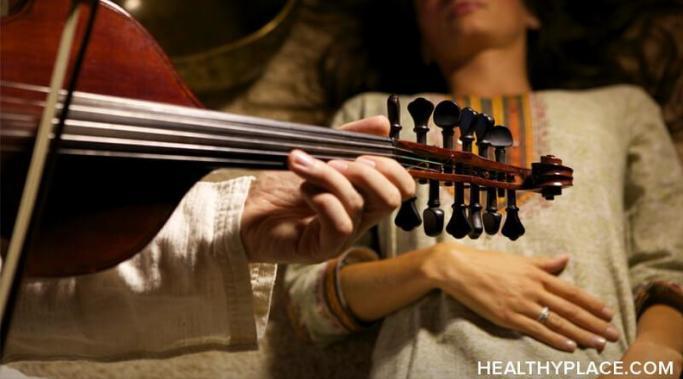Harnessing the power of visualization can help you live an anxiety-free life. The previous post explored how visualization works. Visualization speaks to the brain on a deep level. Images and other imagined sensory input cause brain chemistry and neurological activity to react as if the imagined experiences were real. Further, the brain holds onto them for lasting change. While there are not strict rules, there are techniques that increase the effectiveness of visualization for creating and living an anxiety-free life. The following six tips can help you create a visualization practice for reducing anxiety.
Anxiety-Schmanxiety
It can be hard to see beyond anxiety to picture a life without that anxiety. When anxiety grips us and we can't wriggle free, it's common to feel trapped, stuck, and frustrated. When you want a life without anxiety but can't seem to be able to move toward it, add visualization to the other things you're already doing to reduce anxiety. According to experts in many fields (among them sports, business, psychology, and biology), picturing yourself living a life without anxiety helps you realize that vision.
Finding little things to reduce your anxiety can be an immeasurable help. Far too often, I think, we go right to the big picture problems. Unfortunately, in the case of anxiety, our big picture problems can’t actually be solved (there is no cure for anxiety), and even when they can be treated, it can take months or even years. Finding little things to help here and now can help you get through the difficult times, day by day.
Anxiety lessons come in all forms and sizes. Wisdom about anxiety, ways to understand it so we can begin to create our quality lives without delay, can come from from a plethora of sources. We can even gain insight into anxiety by looking way back into the past. Gems of wisdom from fables written nearly 3000 years ago by a man named Aesop can teach us helpful little anxiety lessons.
I’ve always thrived in the cold weather. No heat, no humidity, watching the snow fall from my front window – these are things I look forward to every year. That being said, I understand millions feel the exact opposite, and in fact, many feel a heightened sense of anxiety during this time.
As hard as it may be to believe, you can create fresh starts despite anxiety. Anxiety is hard to live with in part because it's so unforgiving. We berate ourselves for perceived mistakes and worry that we've completely ruined "everything." Self-blame, guilt, and even self-loathing dominate. Anxious thoughts try to convince us that there's no going back and nothing can be fixed or changed. In reality, there are fresh starts even when we have anxiety. It's never too late to begin anew.
If you want less anxiety, one of the best ways to achieve that is to have fewer friends. I can imagine many of you will think I’m completely misguided – I hope that, by the end of this post, I can at least get you to see where I’m coming from. I wouldn’t be advocating for such a position if I didn’t think that having fewer friends created less anxiety.
Massage for anxiety may just be the feel-good, anxiety-management technique that many of us have been seeking. Wouldn't it be wonderful to be able to use a tool that not only reduced anxiety but was pleasurable, too? Massage can be relaxing, but is that relaxation enough to reduce anxiety? Here's a look at massage for anxiety so you can decide if you want to add this technique to your anxiety-reducing toolbox.
Anxiety therapy is an option for treating anxiety; indeed, counseling for anxiety can be very beneficial in helping you overcome worries and replace them with things that you find important and valuable. If you've thought about seeing a counselor but are unsure whether it's worth it, you're not alone. Deciding whether to seek professional help can sometimes cause more anxiety. Consider the following five benefits of anxiety therapy to help you determine whether counseling for anxiety is right for you.
In my last post, I touched on music for anxiety relief. I want to do the same today, albeit from a different direction. My previous post focused exclusively on the impact of one specific song. This time, I want to talk about the impact of music for anxiety relief in a more general sense.









